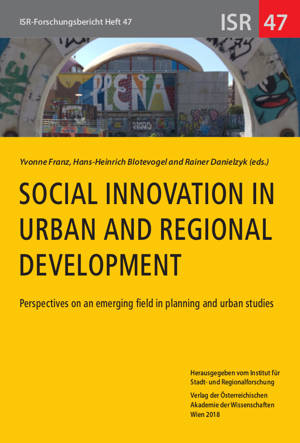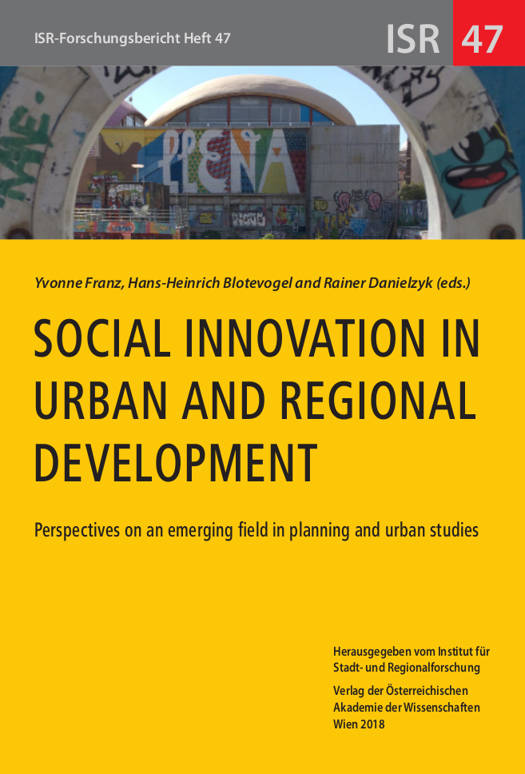
- Retrait en 2 heures
- Assortiment impressionnant
- Paiement sécurisé
- Toujours un magasin près de chez vous
- Retrait gratuit dans votre magasin Club
- 7.000.0000 titres dans notre catalogue
- Payer en toute sécurité
- Toujours un magasin près de chez vous
Social Innovation in Urban and Regional Development
Perspectives on an Emerging Field in Planning and Urban Studies
35,45 €
+ 70 points
Description
This policy handbook discusses the policy-relevant results of the JPI Urban Europe project "Interethnic Coexistence in European Cities" (ICEC). A more detailed documentation of the research approach, methodology and local results on Amsterdam, Stockholm and Vienna can be found in various publications available for download from www.icecproject.com There is not one specific mode of interethnic coexistence - neither in the same city nor in the same neighbourhood. This is one remarkable fact uncovered by the authors of this report during their intensive field research. Interethnic coexistence works in many different ways and is extremely diverse. In our interviews, coexistence, for example in Vienna, generated such polarised messages as "[...] they have their own communities, where they meet and don't want to have contact with us", but also this statement of an Austrian lady: "With Turkish residents one gets a different kind of contact, as there is immediate understanding and openness [...]". The quality of coexistence and the quantity of interethnic interaction are as heterogeneous as the case study neighbourhoods and individuals with whom we spoke. Patterns of interethnic relations are clearly marked by the social and economic status of the neighbourhoods, but are also influenced to a lesser degree by the proportion of the migrant population and the ethnic mix. The ICEC project compared neighbourhood initiatives in Amsterdam, Stockholm and Vienna and considers their effect on local interethnic coexistence and neighbourhood belonging. The study focused on three core questions: 1. Which local initiatives best support and strengthen the integrative power of urban neighbourhoods as places of living and identification for an ethnically diverse population? 2. How does participation in such local initiatives and the initiatives themselves impact the neighbourhood belonging of local residents? 3. What kinds of differences can be found between (non)participation in top-down and bottom-up initiatives?
Spécifications
Parties prenantes
- Editeur:
Contenu
- Nombre de pages :
- 152
- Langue:
- Anglais
- Collection :
- Tome:
- n° 46
Caractéristiques
- EAN:
- 9783700183334
- Date de parution :
- 11-07-18
- Format:
- Livre broché
- Format numérique:
- Trade paperback (VS)
- Dimensions :
- 165 mm x 239 mm
- Poids :
- 362 g

Seulement chez Librairie Club
+ 70 points sur votre carte client de Librairie Club
Les avis
Nous publions uniquement les avis qui respectent les conditions requises. Consultez nos conditions pour les avis.







